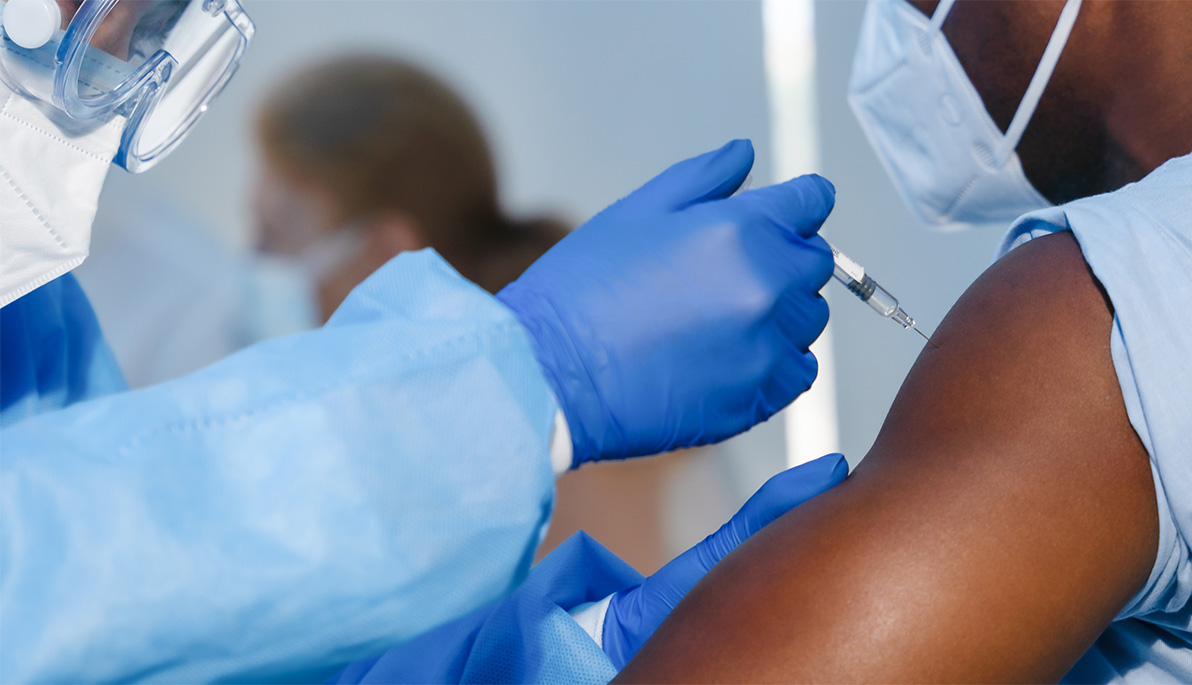News
Improving the Pace of the COVID-19 Vaccination Rollout
January 21, 2021
The COVID-19 vaccine rollout is not proceeding at an effective pace. By mid-January, healthcare professionals had administered only 10 million shots—even though drug companies have distributed over 29 million doses across the United States.
“Getting more needles in Americans’ arms can mean the difference between life and death,” writes Brian Harper, M.D., M.P.H., vice president for equity and inclusion and chief medical officer, in an op-ed in Business Insider.
Manufacturing hundreds of millions of vaccine doses is a herculean undertaking, as is transporting and storing them. Even handling and administering them is a complicated process requiring special training, Harper notes.
Although the federal government poured $18 billion into developing COVID-19 vaccines, it had, until recently, allocated only $340 million to rollout planning and logistics. Further compounding this questionable decision making, federal officials have delegated responsibility for vaccine distribution and administration to individual states, most of which are stretched to the breaking point.
“The federal government must take the lead—by setting clear expectations on supply-chain management, and providing financial support to train and establish a clinical workforce to directly administer the vaccine,” Harper urges.
Also, mechanisms and procedures should be developed so that if a dose isn’t administered to a prioritized individual in a timely fashion, it goes to someone else—regardless of age, occupation, or health status—to avoid vaccine disposal. Inoculating as many people as quickly as possible means giving providers on the ground more flexibility. Regulations should also be established to penalize those who ignore prioritization guidelines, the op-ed notes.
Fortunately, President Joe Biden hopes to immediately address the obstacles that have slowed the vaccine rollout, but meeting his administration’s goal of 100 million doses administered in the first 100 days will be an uphill battle.
Moreover, education about the value and safety of COVID-19 vaccines is essential. Many Americans, particularly in minority communities, have doubts about these vaccines. “As I found during my time working with patients during the height of the HIV/AIDS crisis, building trust in these communities requires concerted, on-the-ground outreach efforts that are far more extensive than what we’ve seen so far,” he says.
A national vaccination campaign is always demanding. “But given the record-breaking spread of the coronavirus, the pace of the current effort must be rapidly improved if lives are to be saved. A massive course correction is urgently needed,” Harper concludes.
Read the entire op-ed.
This op-ed is part of a campaign designed to help generate awareness and build reputation for New York Tech. Read more op-eds by institutional thought leaders.


_Thumb.jpg)


